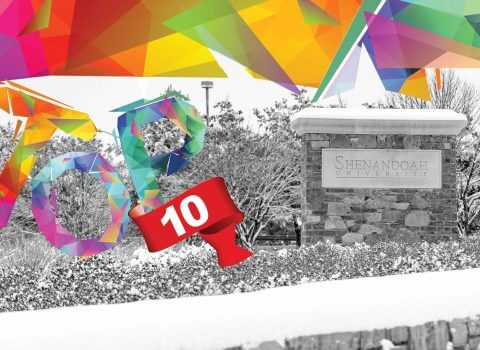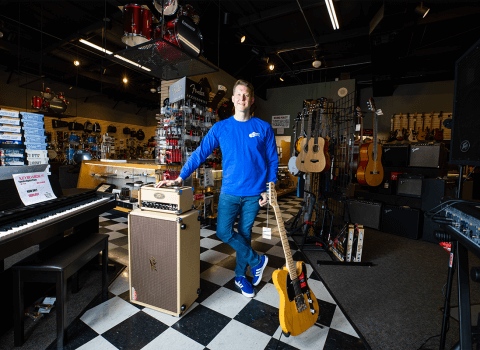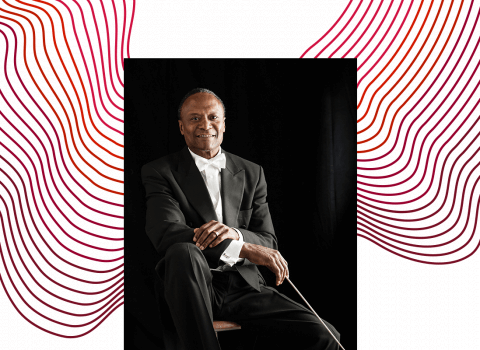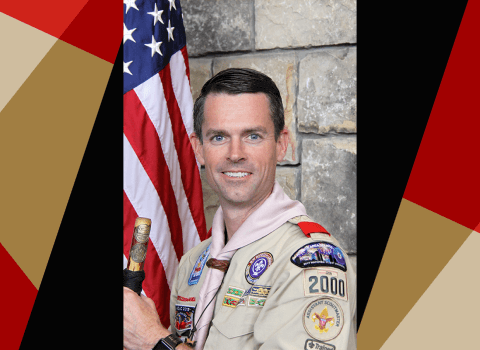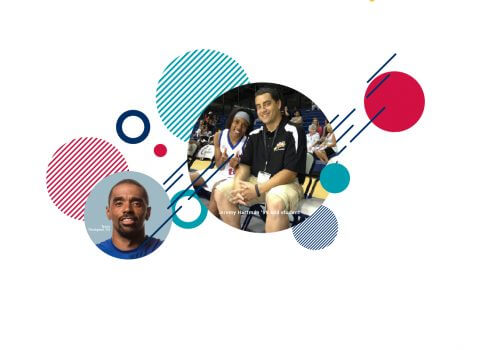A wall covered in bright painted squares and photos arranged in concentric circles, a long couch, abundant bean bag chairs, and a small garden of potted plants inside a large window create an instantly welcoming atmosphere at the Mosaic Center for Diversity.
The Mosaic Center, located on the bottom floor of the Brandt Student Center in a remodeled meeting space (Room 120), is so calm, yet cheerful, that students will pop by and ask, “Can I hang out in here?” said Director of Inclusion and Diversity Maggie McCampbell Lien.
“I just feel like this space is ours,” said Faith Wright, a senior music therapy major who started working with intercultural programs as a sophomore and remained with the office as it transitioned into the Mosaic Center at the beginning of this academic year. Previously, if students involved in intercultural programs wanted to meet, they only had McCampbell Lien’s office and a work-study space available to them.
Now, with the Mosaic Center, there’s a gathering space with a resource library filled with books on social justice topics, a tea station, a “woke” wall featuring current events, and plenty of other hands-on resources for health, responsibility and advocacy.
But more than anything else, it’s a place where people can be themselves. The space offers hope, Wright said, because students know that there’s a place they can go where they don’t have to worry about being judged. For example, if they feel like they can’t talk about political or religious views elsewhere, they can talk about them at the center. It’s a place to speak openly and be heard, she said.
“It doesn’t hurt just to listen,” Wright added.
“We need to have a space where we’re all trying to understand where we’re all coming from,” said Chynna “Chai” Beckett, a senior psychology major who has worked with intercultural programs, now the Mosaic Center, since freshman year. She, like Wright, is a supervisor, now overseeing events they once planned.
Those events include the BeYOUtiful campaign, National Coming Out Day, Dinner Dialogues (where students gather and talk about tough topics over dinner), Bisexual Visibility Day, Hispanic Food Tasting, and a forum about the Confederate flag.
While the center offers understanding, it’s also a place of comfort.
Beckett, who is African American, as is Wright, said that when she first came to Shenandoah from her Maryland home, she initially felt somewhat uncomfortable, but she could see that through intercultural programs, people were working to make people of different races, cultures, ethnicities and sexual orientations feel welcome.
The Mosaic Center tries to make sure students are having an equitable experience. Lien said she engages in lots of one-on-one work with students to make sure they’re O.K. Groups with missions that correspond with the center’s also can reserve the space and meet there – groups like the Black Student Union, the LGBTQ+ group Spectrum, and SU Stands With You, a group of white students working to end racism.
As for Beckett and Wright, the center has made a real difference in their own lives. Wright thinks that she’ll take her passion for advocacy into her music therapy career, knowing that “everybody’s human” – just different in their own ways. “We just need equality,” she said.
Beckett said she’ll take with her the leadership skills she’s developed, including the ability to make her opinion heard. “I’ve learned to stand up for people who don’t have a voice,” she said.
Shenandoah is also standing up for those people, by supporting the creation the Mosaic Center, a space that drew 230 visitors to its early November grand opening. The center’s existence “is a very visible sign that the university cares about this work,” McCampbell Lien said.

